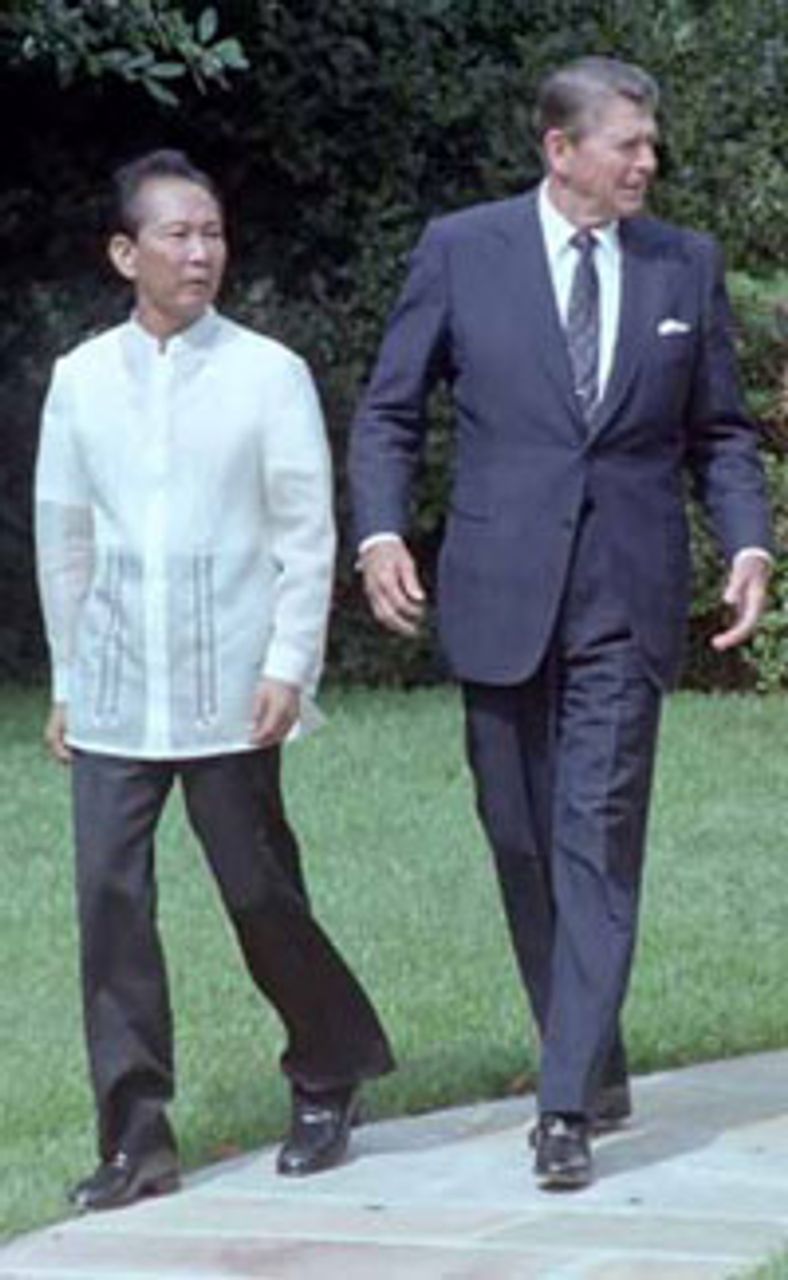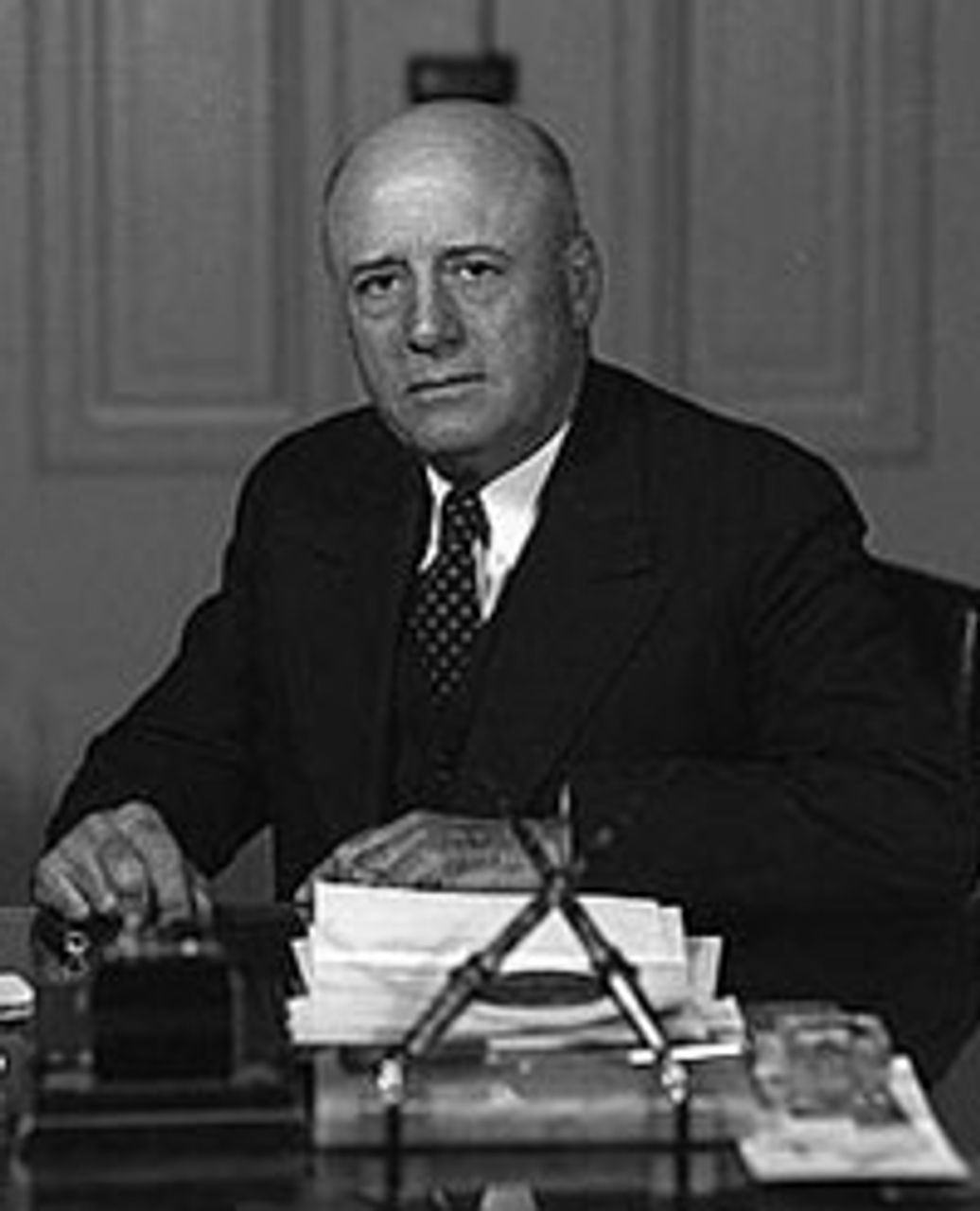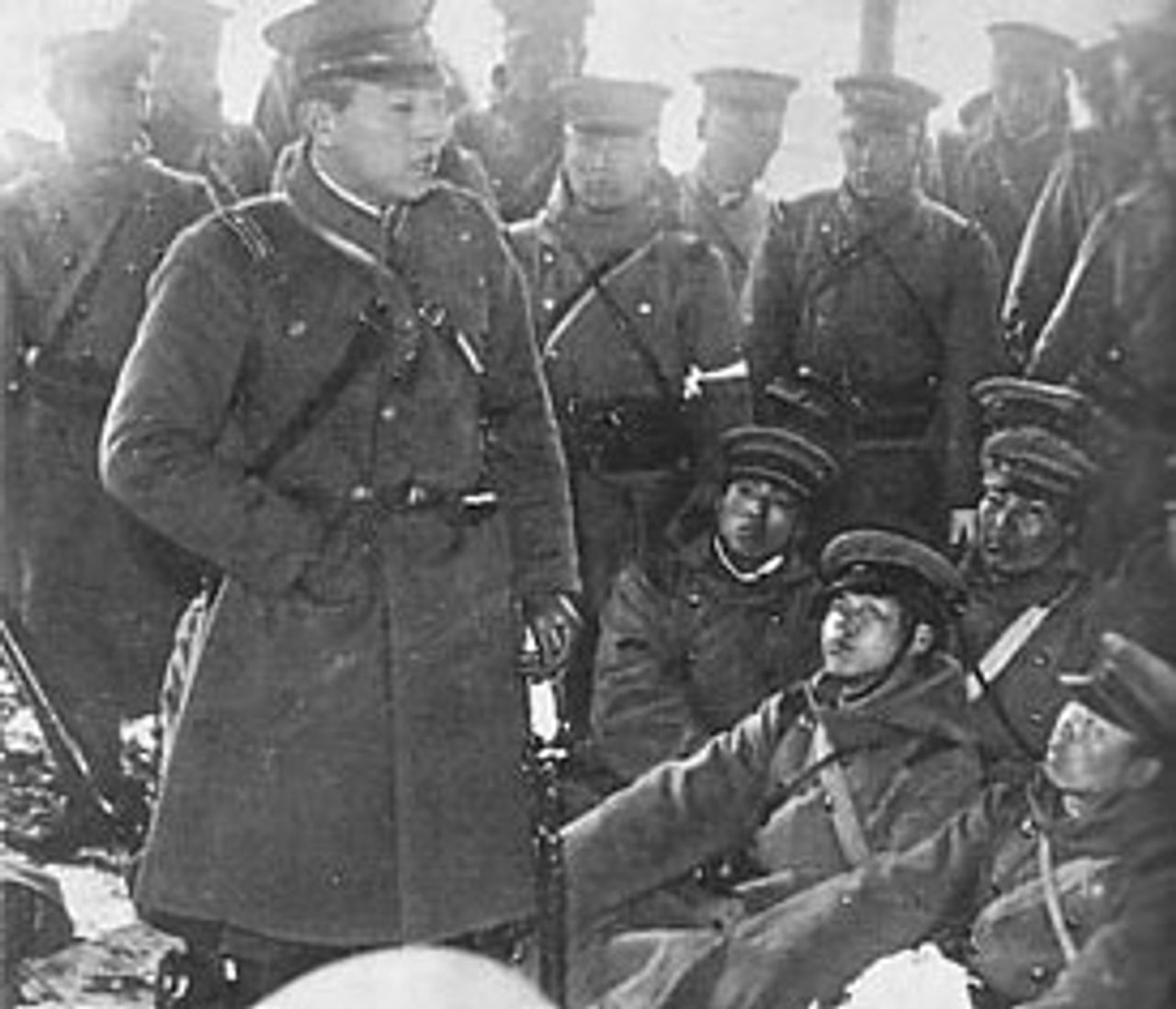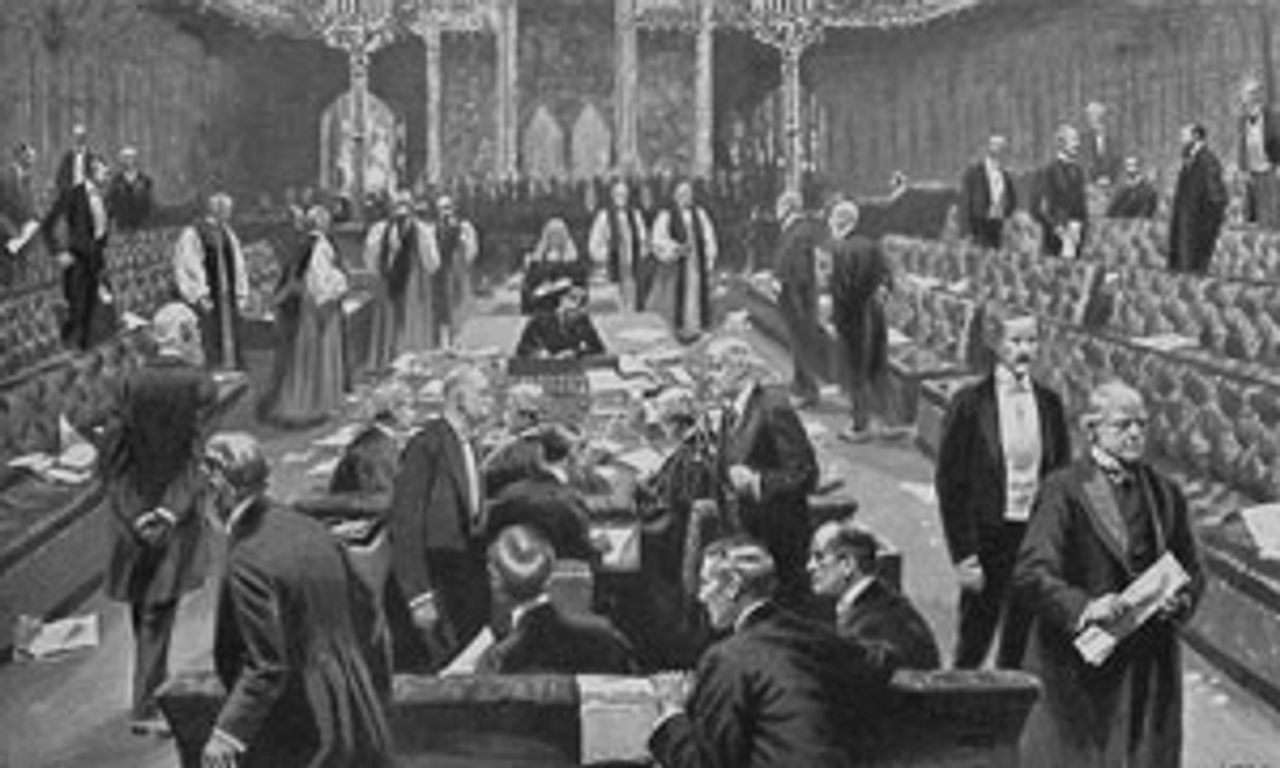This Week in History provides brief synopses of important historical events whose anniversaries fall this week.
25 Years Ago | 50 Years Ago | 75 Years Ago | 100 Years Ago
25 years ago: Marcos flees the Philippines after “People Power” Revolution
 Marcos with Reagan in 1982
Marcos with Reagan in 1982The right-wing Filipino dictator and longtime-US ally Ferdinand Marco fled Manila for Hawaii on February 25, 1986, bringing to an end a 21-year regime that enforced the extreme poverty of the nation’s working masses through police terror. It looted billions of dollars from the economy for the personal benefit of Marcos and wife Imelda.
The “People Power” revolution was successfully manipulated by the US to replace Marcos with Corazon Aquino, who represented not the broad masses but disaffected layers of the Filipino bourgeoisie, latifundia, military, and Catholic hierarchy. While proclaiming its support for limited democratic reforms, the new government had no intention of addressing the social oppression of the working class and peasantry.
In the preceding months and years, millions of Filipinos had gone on strike and demonstrated against widespread poverty, official corruption, and anti-democratic abuses, including extrajudicial killings and torture. This anger had been ignited by the assassination of Marcos opponent Ninoy Aquino in 1983, and Marcos’ rigging of snap elections in February 1986.
The Reagan administration determined at this point to withdraw support for Marcos—Imelda and Ferdinand Marcos were personal friends of Ronald and Nancy Reagan—as it had done only a week earlier for its Haitian stooge Jean-Claude “Baby Doc” Duvalier.
50 years ago: Kennedy proposes spending billions to combat recession
 US Speaker of the House Sam Rayburn
US Speaker of the House Sam Rayburnof Texas
This week in 1961, newly-elected President John Kennedy called for major spending programs, including billions for housing, education, and increased Social Security benefits, and new funding for “distressed areas” in order to combat the recession of 1960-1961. He also requested the expansion of federal unemployment benefits to 125,000 more workers, an increase in the minimum wage from $1 to $1.25, and the extension of minimum wage protections to 4.5 million workers not then covered by it. Secretary of Labor Arthur Goldberg said the various proposals would put in place $1 trillion in new “purchasing power.”
In advocating for Kennedy’s proposals, Democratic House Speaker Sam Rayburn of Texas said that the recession was the worst since the Great Depression—though in February 1961 unemployment was 6.9 percent and GDP had fallen by only about one percentage point.
Dominant sections of the US ruling class were guided by memories of the depression, a crisis they believed had been made worse by “fiscal belt tightening” that had contributed to provoking near-insurrectionary working class struggles. Prevailing wisdom was that recessions should be swiftly dealt with by ameliorating the worst conditions and improving wages, to avoid provoking renewed social resistance.
Yet the combined costs of increased social spending and Kennedy’s demand for a rapid increase in military spending would only contribute to the erosion of US economic power. The preceding months had seen a flight from the dollars in Europe, and with it a rapid draw-down in US gold reserves, the basis of the postwar global currency system. In December 1960 and January 1961, gold flowed from US vaults at a pace of $100 million per week.
75 years ago: ‘February 26th incident’ in Japan harnessed to war drive
 Rebel Japanese soldiers, February 26
Rebel Japanese soldiers, February 26An attempted coup by disgruntled young officers from the Imperial Japanese Army on the 26th of February 1936 is marked in history simply by the date it occurred. The “February 26th incident” accelerated Imperial Japan’s drive towards the Second Sino-Japanese War and entry into the Second World War.
Economic recession and an upsurge of the class struggle gripped Japan in the years after the end of the First World War. Social inequality grew quickly between workers and the fast-emerging Zaibatsu industrial and financial family monopolies. Competing Army factions developed different tactics by which to solve the fundamental problems of the growth and militancy of the Japanese working class.
One military faction wished to “strike south” in Asia, while the “Imperial Way Faction,” who would lead the February coup, favoured a pre-emptive strike on the Soviet Union. Based on a mixture of European Fascism and the bushido code of the Samurai, the Imperial Way Faction wished to return to a mythical pre-industrial, pre-‘Westernised’ Japan that would supposedly supplant the contradictions of modern capitalism.
The coup was crushed by officers loyal to the Emperor Hirohito within three days, but the army utilised the aftermath to place the country on a war footing and increase its political influence. Martial law was implemented for six months and Prime Minister Okada Keisuke was forced to resign, making way for Hirota Koki, who would conclude Imperial Japan’s alliance with Nazi Germany.
100 years ago: Parliament Act reduces power of House of Lords
 Painting depicting passage of the Parliament Act
Painting depicting passage of the Parliament Act On February 22, 1911, the United Kingdom’s House of Commons passed by a margin of 351 to 227 the Parliament Act, which would drastically reduce the power of the upper chamber of parliament, the House of Lords, by sharply constricting its authority to veto bills.
The unelected House of Lords was based in the landed gentry and the Church of England. Most of the peerages were hereditary, while others were lifetime appointees of the monarch. Though its power had in practice eroded somewhat in the course of the 19th century, in principle the Lords held the power to block bills emerging from the elected House of Commons—at least since the aftermath of the English Civil War, when the Commons had for a time abolished the upper house (for a period of about a decade) as “useless and dangerous to the people of England.”
Matters finally came to a head in 1909, when Liberal Prime Minister Asquith and Chancellor of the Exchequer David Lloyd George introduced the reformist “People’s Budget,” which declared its aim of eradicating poverty in Britain, to be partially paid for by levying a “land tax” on large estates. The Lords rejected the measure, the first time since the days of Cromwell they rejected the power of the purse exercised by the Commons. The Liberals campaigned successfully against the Conservative Unionists in 1910 and 1911 on the issue.
In spite of the Liberals’ democratic pretensions, the dispute was a battle within the confines of the British ruling class. Asquith, George, and Interior Minister Winston Churchill sought to put in place reform measures to avert a social explosion. Tragically, Parliament used the restructuring of power within the Parliament in no small part to modernize Britain and prepare it for war with Germany. Indeed, a key element of the People’s Budget” was naval rearmament, to maintain Britain’s traditional naval superiority over Germany.
